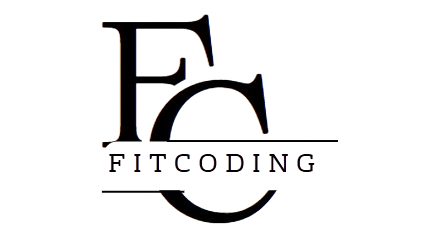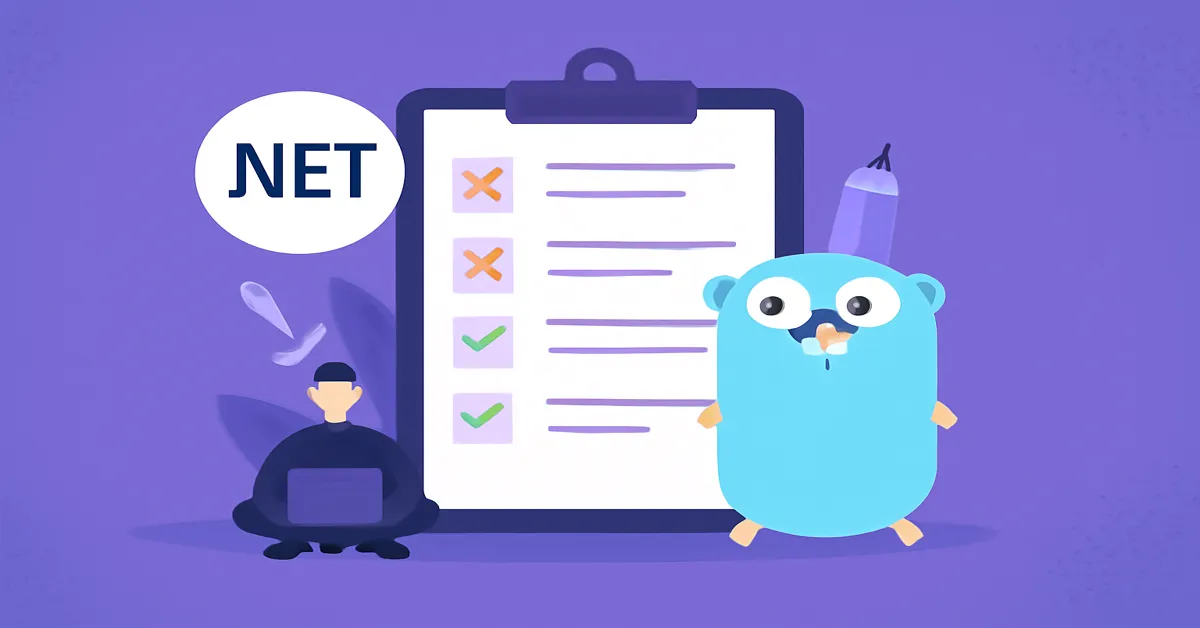In the fast-paced world of software development, .NET and Golang (Go) have emerged as two of the most popular and powerful programming ecosystems. While .NET offers an extensive, feature-rich platform for building large-scale enterprise applications, Go is celebrated for its simplicity, performance, and scalability, particularly in cloud-native and concurrent applications. Both platforms have specific strengths, and mastering either (or both) can significantly boost your software development career – Quiz.
One of the most effective ways to ensure you understand the core concepts and practices of .NET and Golang is through regular self-assessment. Quizzes can be a fun, interactive, and informative way to gauge your knowledge and push the boundaries of your skills. In this article, we’ll explore a series of detailed quizzes for both .NET and Golang, focusing on key areas like syntax, data structures, object-oriented programming, concurrency, frameworks, and best practices – Quiz.
These quizzes are not only an opportunity to test your theoretical knowledge but also a way to identify gaps in your understanding, allowing you to further refine your abilities and become an expert developer in both environments.
Section 1: The Importance of Quizzes in Learning Programming
1.1 Why Quizzes Matter in Programming
Quizzes are a powerful tool in the learning process for several reasons:
- Active Learning: They force you to actively recall information, which enhances memory retention.
- Instant Feedback: Quizzes provide immediate feedback, helping you identify areas where you need improvement.
- Motivation: They can be a fun and engaging way to track progress and stay motivated during the learning process.
- Assessment of Knowledge Gaps: Quizzes often highlight gaps in your knowledge that might go unnoticed otherwise, enabling you to focus on specific areas.
- Critical Thinking: They challenge you to think critically about the material you’ve learned, ensuring a deeper understanding.
Whether you’re learning .NET for enterprise applications or diving into Golang for cloud services and microservices, quizzes allow you to measure your knowledge and keep your skills sharp.
Section 2: Quiz for .NET Programming
2.1 .NET Quiz: Core Concepts and Syntax
Question 1: Which of the following is the default type of an uninitialized variable in C#?
- A)
null - B)
0 - C)
"" - D)
false
Answer: A) null
Explanation: In C#, uninitialized variables of reference types (like objects or arrays) are set to null.
Question 2: What is the purpose of the using keyword in C#?
- A) It imports namespaces.
- B) It defines a class.
- C) It allocates memory for objects.
- D) It marks the start of a loop.
Answer: A) It imports namespaces.
Explanation: The using keyword in C# is used to import namespaces, making classes and methods accessible without fully qualifying their names.
Question 3: Which of the following is NOT a type of collection in .NET?
- A)
List<T> - B)
Dictionary<T, T> - C)
Set<T> - D)
ArrayList<T>
Answer: D) ArrayList<T>
Explanation: ArrayList is an older, non-generic collection that has been replaced by List<T>. Collections like Set<T> don’t exist in the standard .NET library.
Question 4: What is the main difference between IEnumerable and IQueryable in .NET?
- A)
IQueryableexecutes queries in memory;IEnumerableexecutes them against the database. - B)
IEnumerableexecutes queries in memory;IQueryableexecutes them against the database. - C)
IEnumerablecan only be used with arrays, whileIQueryablecan be used with lists. - D) There is no difference.
Answer: B) IEnumerable executes queries in memory; IQueryable executes them against the database.
Explanation: IEnumerable operates on in-memory collections like arrays, while IQueryable translates LINQ queries into database queries.
Question 5: Which of the following is true about ASP.NET Core middleware?
- A) Middleware is used to add, modify, or stop HTTP requests and responses in the pipeline.
- B) Middleware is used to manage database connections.
- C) Middleware only handles security and authentication.
- D) Middleware handles UI rendering.
Answer: A) Middleware is used to add, modify, or stop HTTP requests and responses in the pipeline.
Explanation: ASP.NET Core middleware is used to handle HTTP requests, such as logging, routing, authentication, and response generation.
2.2 Advanced .NET Quiz: Object-Oriented Programming and Frameworks
Question 1: Which .NET design pattern involves ensuring that a class has only one instance and provides a global point of access to it?
- A) Singleton
- B) Factory Method
- C) Adapter
- D) Observer
Answer: A) Singleton
Explanation: The Singleton pattern ensures that a class has only one instance and provides a global access point to it.
Question 2: What does Dependency Injection in .NET Core primarily help with?
- A) Managing lifecycle of services
- B) Managing database transactions
- C) Optimizing memory usage
- D) Handling API requests
Answer: A) Managing lifecycle of services
Explanation: Dependency Injection in .NET Core is used to manage the lifecycle and dependencies of services, promoting loose coupling and easier unit testing.
Question 3: In Entity Framework Core, which of the following is used to create database schema from your models?
- A)
Add-Migration - B)
Update-Database - C)
Create-Database - D)
DbContext.SaveChanges()
Answer: A) Add-Migration
Explanation: Add-Migration is used to generate migration files, which can then be applied to create or update the database schema.
Section 3: Quiz for Golang Programming
3.1 Golang Quiz: Core Concepts and Syntax
Question 1: In Go, which of the following data types is not implicitly initialized with zero values?
- A)
int - B)
float64 - C)
map - D)
string
Answer: C) map
Explanation: In Go, types like map, slice, and channel are initialized as nil (not zero values), whereas other types like int, float64, and string are initialized to 0, 0.0, and "" respectively.
Question 2: Which keyword is used in Go to declare a constant?
- A)
constant - B)
var - C)
const - D)
define
Answer: C) const
Explanation: The const keyword is used to declare constants in Go. Constants in Go are values that cannot be modified once set.
Question 3: Which of the following statements about goroutines in Go is true?
- A) They are always run sequentially on the main thread.
- B) They are lightweight and managed by the Go runtime.
- C) They are not capable of handling concurrency.
- D) They are limited to only running 10 tasks concurrently.
Answer: B) They are lightweight and managed by the Go runtime.
Explanation: Goroutines are lightweight threads managed by the Go runtime. They allow efficient concurrent programming without the overhead of traditional threads.
3.2 Advanced Golang Quiz: Concurrency, Channels, and Best Practices
Question 1: Which of the following keywords in Go is used to send data through a channel?
- A)
send - B)
channel - C)
go - D)
<-
Answer: D) <-
Explanation: The <- operator is used to send and receive data through channels in Go.
Question 2: What is the purpose of the defer keyword in Go?
- A) To delay the execution of a function until the program exits.
- B) To ensure a function is called at the beginning of another function.
- C) To postpone the execution of a function until the surrounding function finishes.
- D) To create a constant value.
Answer: C) To postpone the execution of a function until the surrounding function finishes.
Explanation: The defer keyword is used in Go to ensure that a function is executed after the surrounding function completes, which is typically used for cleanup actions.
Question 3: What is a common Go idiom for handling errors?
- A)
return err; if err != nil - B)
err.throw() - C)
error.handle() - D)
try-catch
Answer: A) return err; if err != nil
Explanation: In Go, the convention for error handling is to check if an error is nil before proceeding, often using if err != nil followed by returning the error.
Section 4: Conclusion – The Power of Quizzes in Mastery
Quizzes provide an excellent way to reinforce learning, especially for complex programming languages and frameworks like .NET and Golang. As you continue to work with both technologies, incorporating quizzes into your study routine can significantly improve your problem-solving skills, memory retention, and ability to apply your knowledge in real-world scenarios.
Whether you are building enterprise applications with .NET or working on highly concurrent, cloud-based systems with Golang, regularly testing yourself with quizzes will keep you sharp, ensure you’re up to date with best practices, and help you master the intricacies of each platform.
By engaging with quizzes, you not only reinforce your existing knowledge but also challenge yourself to solve problems, think critically, and adopt a deeper understanding of .NET and Golang. Whether you’re preparing for an interview or simply looking to improve your development skills, quizzes are a fantastic tool in your learning toolkit.
Referring Books:
A Curated List of Books to Master .NET and Golang: A Developer’s Guide to Excellence
A Curated List of Essential .NET and Golang Books: Your Path to Mastery
FAQs
1. How do quizzes help in mastering .NET and Golang?
Answer: Quizzes help reinforce key programming concepts, identify knowledge gaps, and improve problem-solving skills by testing real-world applications, enhancing retention and understanding of core features in both .NET and Golang.
2. What are some common topics covered in .NET quizzes?
Answer: .NET quizzes typically cover topics like C# syntax, ASP.NET Core, Entity Framework, LINQ, dependency injection, design patterns, and multithreading.
3. Are Golang quizzes focused on concurrency and performance?
Answer: Yes, Golang quizzes often focus on goroutines, channels, concurrency patterns, error handling, performance optimization, and Go-specific idioms, as these are core strengths of the language.
4. Can quizzes be used to prepare for job interviews in .NET or Golang?
Answer: Absolutely! Quizzes are an excellent way to prepare for technical interviews by familiarizing yourself with key topics, algorithms, and problem-solving techniques relevant to .NET and Golang positions.
5. What is the best way to use quizzes to study .NET and Golang?
Answer: Use quizzes regularly as self-assessments after completing sections of study material. Focus on reviewing incorrect answers to understand concepts more deeply, and track progress over time to monitor improvement.











